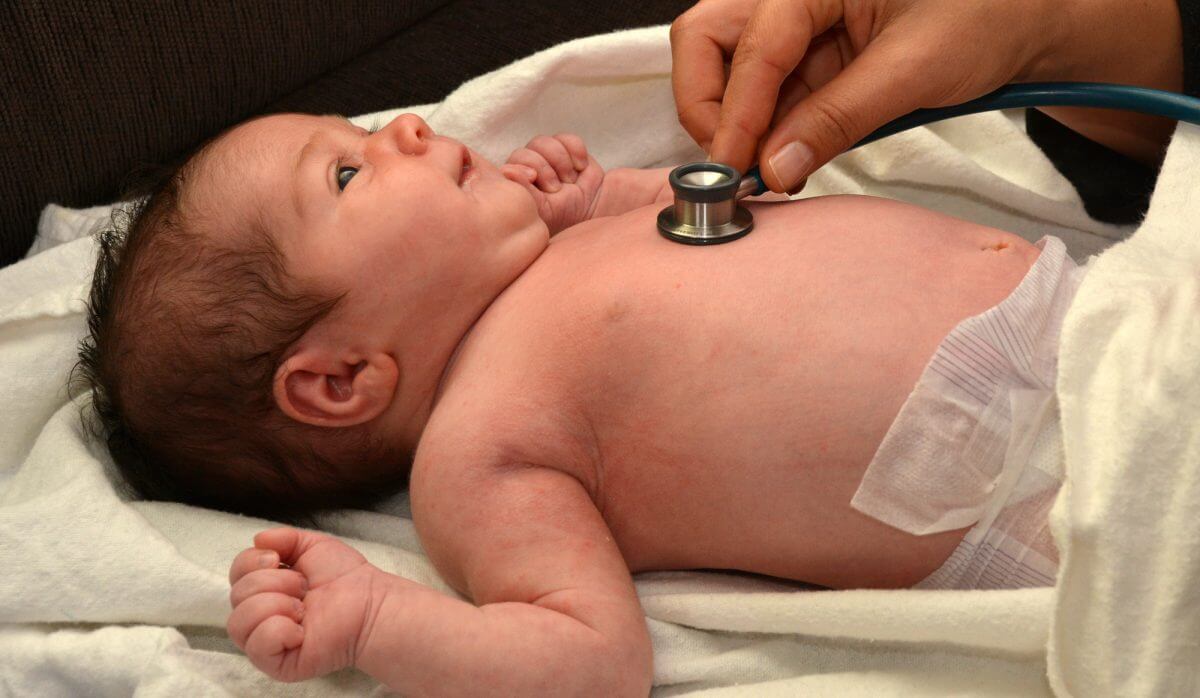Articles and Information
 Dec 17
Dec 17
What you need to know to prevent birth defects
January is National Birth Defects Prevention Month. Join the efforts to raise awareness and prevent children being born with defects.
Some babies are born with special differences called birth defects, which can affect any part of their body in big or small ways. These differences can impact how they look, move, or even breathe. Depending on the type and severity, these differences might affect a child’s health and lifespan, but every kid is unique and can thrive with the right support.
Not all birth defects can be prevented. But you can increase your chances of having a healthy baby by managing health conditions and by adopting healthy behaviors before and during pregnancy. Taking care of yourself and doing what’s best for you is also best for your baby.
Identifying Birth Defects
A birth defect can be found before birth, at birth, or any time after birth. Most birth defects are found within the first year of life. Some birth defects (such as cleft lip) are easy to see, but others (such as heart defects or hearing loss) are found using special tests, such as echocardiograms (an ultrasound picture of the heart), x-rays or hearing tests.
Tips for Preventing Birth Defects:
400 micrograms of Folic Acid Every Day– Be sure to take 400 mcg of folic acid each day. Folic acid can help prevent major birth defects in the baby’s brain and spine which can develop very early in pregnancy when the neural tube, which forms the early brain and spinal cord does not close properly. It is best to start taking folic acid at least one month before becoming pregnant and continue during pregnancy in addition to eating foods with natural folate. You can find folic acid in some breads, breakfast cereals and corn masa flour. Be sure to check the nutrient facts label and look for one that states 100% next to folic acid.
Talk with your healthcare provider before stopping or starting any medication. Many women need to take medicine to stay healthy during pregnancy. If you are planning to become pregnant, discuss your current medicines with a healthcare provider, such as your doctor or pharmacist. Creating a treatment plan for your health condition before you are pregnant can help keep you and your developing baby healthy.
Be sure to be up to date with all vaccines, including a flu shot. Vaccines help protect you and your developing baby against serious diseases. Get a flu shot and whooping cough vaccine (also called Tdap) during each pregnancy to help protect yourself and your baby.
Be sure to maintain or reach a healthy weight. Obesity increases the risk for several serious birth defects and other pregnancy complications. If you are underweight, overweight, or have obesity, talk with your healthcare provider about ways to reach and maintain a healthy weight before you get pregnant. Focus on a lifestyle that includes healthy eating and regular physical activity.
Boost your health by avoiding harmful substances during pregnancy, such as alcohol, tobacco, and other drugs.
- Alcohol: There is no known safe amount of alcohol during pregnancy or when trying to get pregnant. Alcohol can cause problems for a developing baby throughout pregnancy, so it’s important to stop drinking alcohol when you start trying to get pregnant.
- Tobacco: Smoking causes cancer, heart disease, and other major health problems. Smoking during pregnancy can also harm the developing baby and can cause certain birth defects. Quitting smoking will help you feel better and provide a healthier environment for your baby.
- Other Drugs: Using certain drugs during pregnancy can cause health problems for a woman and her developing baby. If you are pregnant or trying to get pregnant and can’t stop using drugs―get help! Your Avenue 360 healthcare provider can help you with counseling, treatment, and other support services.
Ask your healthcare provider about health risks associated with pregnancy. To schedule an appointment at Avenue 360, call (713) 426-0027 or click here.
The information contained in this Avenue 360 Web site is not a substitute for medical advice or treatment, and Avenue 360 recommends consultation with your Avenue 360 doctor or health care professional.